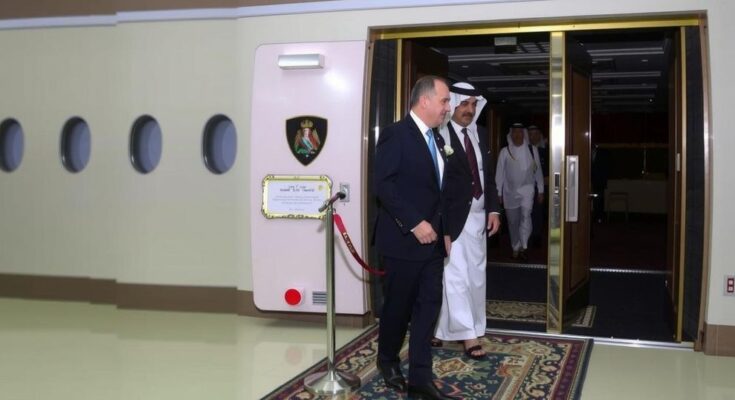Syria’s Foreign Minister Asaad al-Shaibani will visit Qatar, the UAE, and Jordan this week to foster partnerships and attract investments for rebuilding the country’s war-damaged economy. These visits come after his initial diplomatic efforts in Saudi Arabia and reflect a shift in Syrian foreign relations following the change in leadership.
Syria’s Foreign Minister, Asaad al-Shaibani, announced his upcoming official visits to Qatar, the United Arab Emirates (UAE), and Jordan as part of his government’s effort to strengthen ties with Gulf nations. This follows his inaugural visit to Saudi Arabia since the Syrian leadership undertook a transition after ousting President Bashar al-Assad. The Syrian authorities aim to attract investment to rebuild national infrastructure and revitalize an economy ravaged by years of conflict.
During his state visit, Minister al-Shaibani expressed hope that these diplomatic endeavors will foster stability and create robust partnerships. This strategic outreach to Gulf states is crucial for Syria as it navigates the post-conflict recovery phase. Notably, earlier discussions between a Saudi delegation and new Syrian leadership signal shifting geopolitical dynamics and investment opportunities in the region.
This week’s visits signal a critical window for Syria’s interim authorities to engage with influential neighbors who possess the financial resources necessary for reconstruction efforts. Al-Shaibani’s remarks on the impending visits underscore a diplomatic pivot towards forming effective collaborations to ensure both security and economic recovery for Syria in the wake of its prolonged struggles.
Earlier in the week, al-Shaibani led a high-ranking delegation to Riyadh, which marks a significant diplomatic maneuver for Syria’s newly established governance. Such interactions with Saudi representatives highlight the evolving relationships in the region and the potential for collaborative ventures moving forward.
As the Syrian leadership seeks assistance from regional allies, it is imperative that these visits yield tangible support for the nation’s stabilization and development.
Syria has been engulfed in conflict for over a decade, leading to significant destruction of its infrastructure and economic downturn. The recent political changes in Syria have opened opportunities for new leadership to engage with international powers, particularly the Gulf states, which are viewed as critical partners for financial investment and reconstruction. The foreign minister’s visits are geared towards establishing favorable conditions for a future partnership that could spur economic recovery and regional stability. Moreover, the involvement of the new Syrian authority led by Ahmed al-Sharaa, a former rebel leader, hints at an intent to recalibrate Syria’s relationships with neighboring countries to facilitate its recovery.
In conclusion, Foreign Minister Asaad al-Shaibani’s scheduled visits to Qatar, the UAE, and Jordan illustrate Syria’s proactive approach in seeking international cooperation for rebuilding its war-torn nation. As it grapples with the aftermath of over a decade of armed conflict, forging strong partnerships with wealthy Gulf nations stands as a pivotal element in Syria’s recovery strategy. The geopolitical shifting represented by these visits underscores the importance of diplomacy in addressing Syria’s immediate needs and long-term stabilization efforts.
Original Source: www.newarab.com




